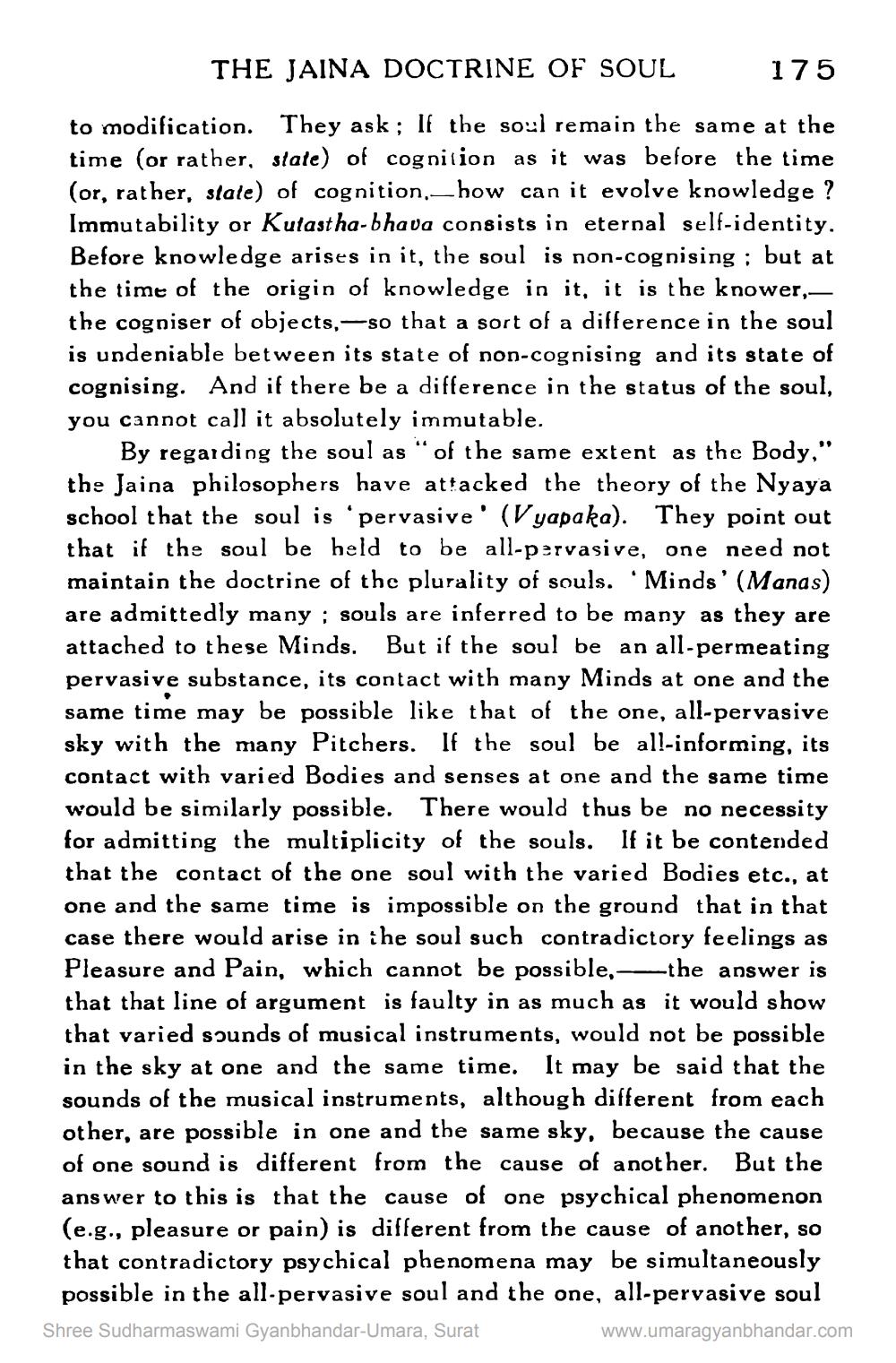________________
THE JAINA DOCTRINE OF SOUL
175
to modification. They ask; If the soul remain the same at the time (or rather, state) of cognition as it was before the time (or, rather, state) of cognition, how can it evolve knowledge? Immutability or Kutastha-bhava consists in eternal self-identity. Before knowledge arises in it, the soul is non-cognising; but at the time of the origin of knowledge in it, it is the knower,— the cogniser of objects,-so that a sort of a difference in the soul is undeniable between its state of non-cognising and its state of cognising. And if there be a difference in the status of the soul, you cannot call it absolutely immutable.
By regarding the soul as of the same extent as the Body," the Jaina philosophers have attacked the theory of the Nyaya school that the soul is 'pervasive' (Vyapaka). They point out that if the soul be held to be all-pervasive, one need not maintain the doctrine of the plurality of souls. 'Minds' (Manas) are admittedly many; souls are inferred to be many as they are attached to these Minds. But if the soul be an all-permeating pervasive substance, its contact with many Minds at one and the same time may be possible like that of the one, all-pervasive sky with the many Pitchers. If the soul be all-informing, its contact with varied Bodies and senses at one and the same time would be similarly possible. There would thus be no necessity for admitting the multiplicity of the souls. If it be contended that the contact of the one soul with the varied Bodies etc., at one and the same time is impossible on the ground that in that case there would arise in the soul such contradictory feelings as Pleasure and Pain, which cannot be possible,- -the answer is that that line of argument is faulty in as much as it would show that varied sounds of musical instruments, would not be possible in the sky at one and the same time. It may be said that the sounds of the musical instruments, although different from each other, are possible in one and the same sky, because the cause of one sound is different from the cause of another. But the answer to this is that the cause of one psychical phenomenon (e.g., pleasure or pain) is different from the cause of another, so that contradictory psychical phenomena may be simultaneously possible in the all-pervasive soul and the one, all-pervasive soul Shree Sudharmaswami Gyanbhandar-Umara, Surat
www.umaragyanbhandar.com




